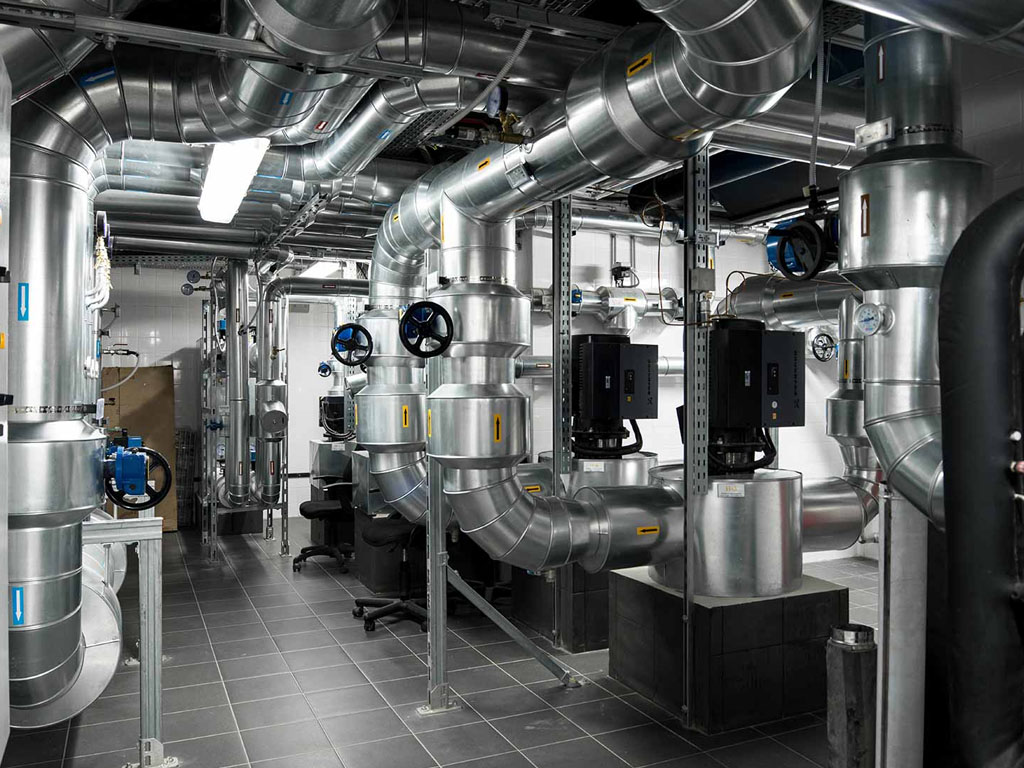The efficiency and reliability of heating systems depends, to a large extent, on the quality of water circulating in them. Heating water must meet certain requirements that are defined by VDI 2035 standard.
With properly treated water, either larger or smaller heating systems keep running at peak efficiency.
So what should the heating water be like?
First, it should resist scaling, i.e. deposits of calcium or magnesium compounds forming in the heating devices.
If such deposits occur, it will definitely result in significantly higher costs due to: decreased thermal efficiency of the system, problems with heat distribution, clogging of some heating system elements, heat exchanger damage, pump malfunction etc.
VDI 2035 standard includes detailed guidelines which, if followed, help to avoid all problems related to solids build-up in heating systems.
However, not only calcium carbonate or copper carbonate deposits can reduce the efficiency of heating systems.
Corrosion is another very serious problem. Corrosion occurs mainly in those heating systems where oxygen (along with water) enters the system. The expansion of corrosion will be even faster if the water has a low pH, temperatures in the system are high, and leaks pop up in different spots.
Corrosion attacking metal parts badly affects the heating system, leading to higher energy consumption and lower thermal efficiency of the system. That is not all - corrosion can even cause heat meters to take faulty, incorrect measurements.
Every effort must be made to prevent these adverse effects.
Careful assessment of physical and chemical characteristics of feed water is crucial. On the basis of this assessment, the most appropriate process of heating water treatment can be developed to improve water parameters and the most suitable layout of heating devices can be developed for the particular project.
It is important to remember that heating water has nothing to do with drinking water. Obviously, it is drinking water that requires treatment to be suitable for application in the heating system.
To avoid the above undesirable phenomena of the formation of deposits and corrosion during the operation of the heating system, it is necessary to use it in a reasonable way and this, in turn, demands performing periodical water filtration.

Granimex provides all works in the scope of: heating water treatment, development, installation and service of heating systems, maintenance inspections and repairs. At Granimex we also provide services concerning modernization of older heating system models.
For this purpose, we use the most effective technologies, equipment and materials straight from market leaders.
They include:
hard water softening systems. Softening of heating water is critical to the flawless operation of the heating system. Therefore, we offer systems utilizing ion exchange to reduce hardness and demineralize water, also softening systems that can be permanently built into the heating system;
- mobile demineralization systems;
- mobile reverse osmosis units;
- portable beds for filling heating systems;
- various types of filters, including: microfilters equipped with a non-return valve to prevent heating water from entering the system where drinking water is used, circulation filters;
- highly efficient devices for flushing and venting of the heating system before it is filled for the first time;
- heating water conditioner;
- heating system pipe cleaners;
- measurement and control devices.
At Granimex, we handle standard orders as well as customised products, where individual approach is needed.



